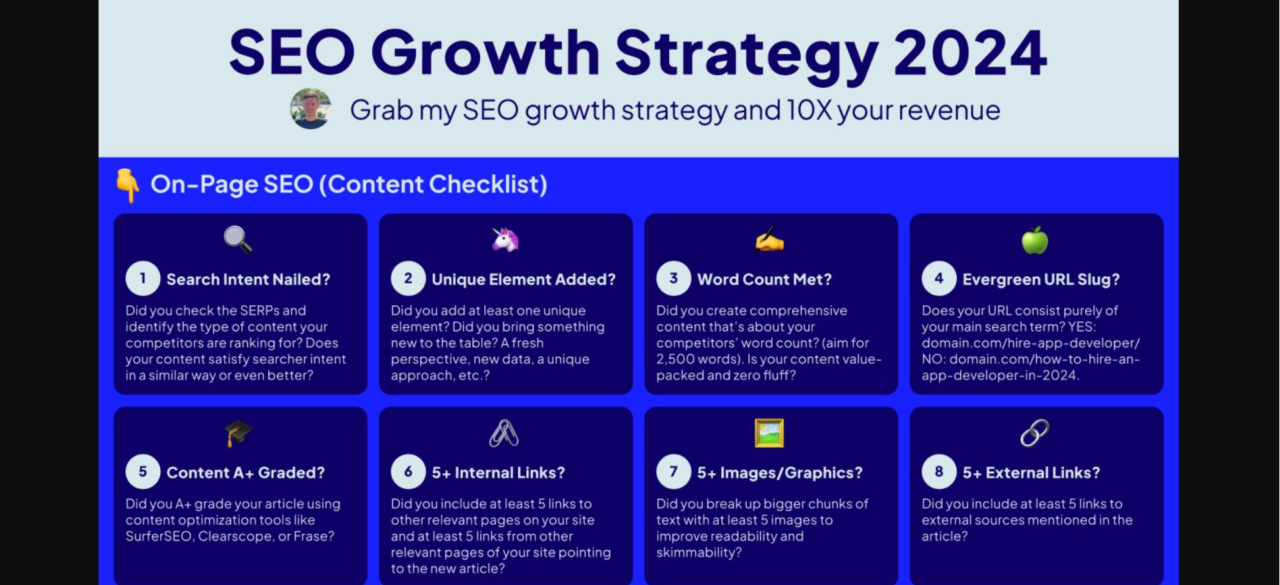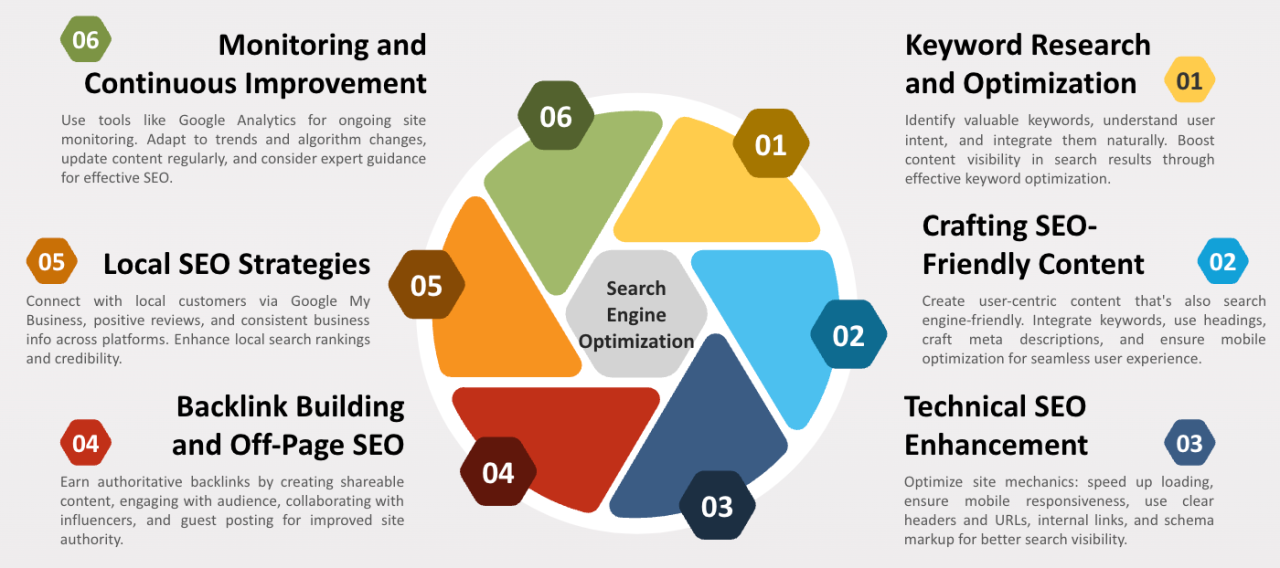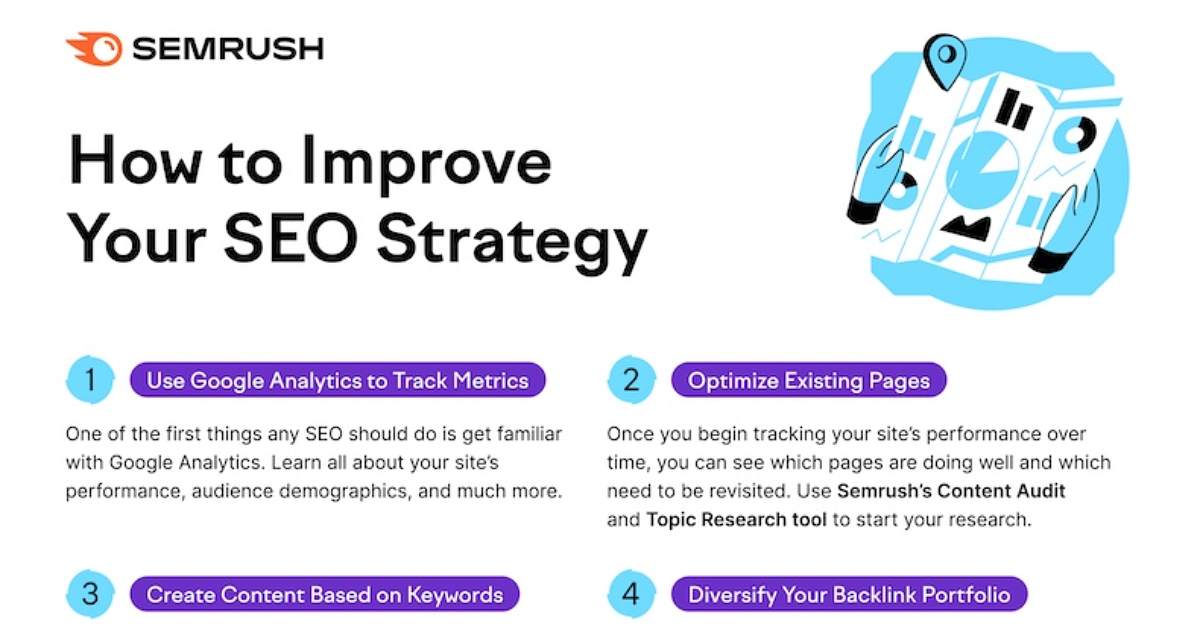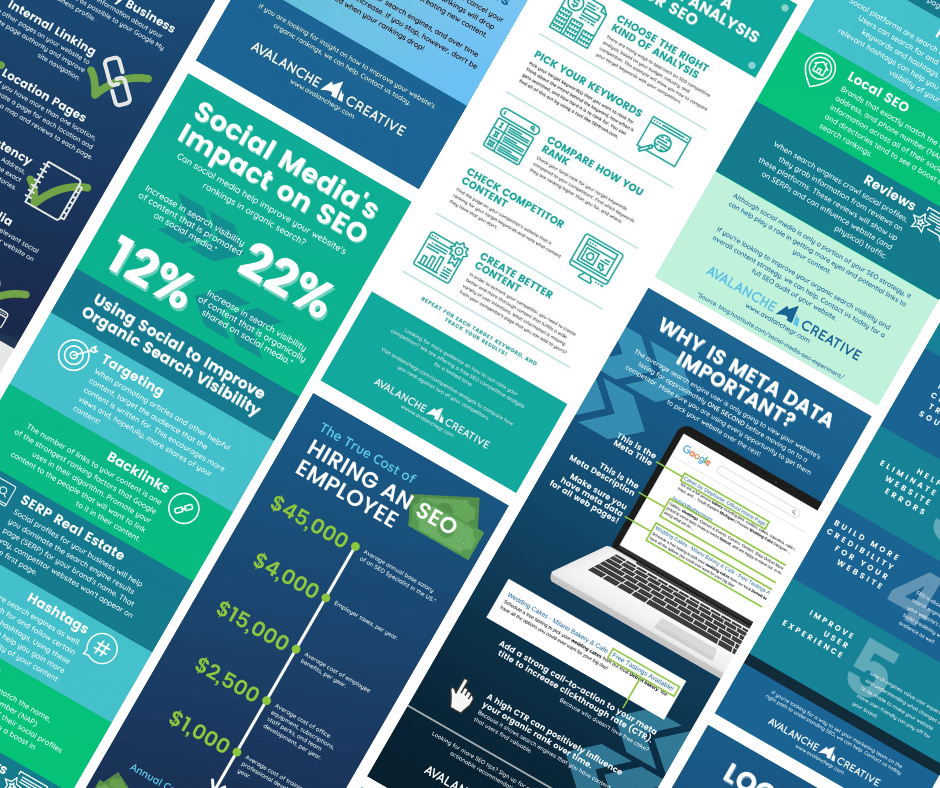Unlock the secrets to skyrocketing your SEO rankings with these expert tips and strategies for dominating search engine results.

Image courtesy of via DALL-E 3
Table of Contents
Introduction to SEO
Search Engine Optimization, often abbreviated as SEO, is a crucial element for websites looking to increase their visibility on the internet. Imagine the internet as a massive library with billions of books, where the librarian (search engine) needs to organize and prioritize which books are the most relevant and valuable to readers. SEO is like having the best book in the library and making sure it’s easy for the librarian to find and recommend to readers.
What is SEO?
SEO stands for Search Engine Optimization, which is the process of optimizing your website to rank higher in search engine results pages like Google. When someone searches for a specific topic or product online, search engines use complex algorithms to determine which websites are the most relevant and useful. By understanding and implementing SEO strategies, you can improve your website’s chances of being shown to more people searching for what you offer.
Why is SEO important?
Good SEO is essential for websites because it helps you stand out in the vast ocean of web content. Imagine having a storefront without any signs or directions – no one would know you exist! With effective SEO, you can attract more visitors to your website, increase your web visibility, and ultimately grow your online presence. SEO is like having a secret map that guides people directly to your digital doorstep, making it easier for them to discover and engage with your content.
Starting With SEO
Before diving into the world of SEO, it’s essential to set clear goals for what you want to achieve. Do you want more people to visit your website? Are you looking to increase sales or raise awareness about your brand? By defining your objectives, you can tailor your SEO strategy to meet these specific needs.
Understanding Your Audience
Knowing your target audience is crucial when it comes to SEO. You need to understand who your potential visitors are, what they are searching for, and how they behave online. By gaining insights into your audience’s preferences and browsing habits, you can create content that resonates with them and attracts more traffic to your site.
Keyword Optimization
Choosing the right keywords is essential for improving your website’s SEO. Keywords are the words or phrases that people type into search engines when looking for information. By optimizing your website with the right keywords, you can increase your chances of being found by your target audience.

Image courtesy of www.linkedin.com via Google Images
Finding Appropriate Keywords
When selecting keywords for your website, it’s important to think about what your target audience might be searching for. Put yourself in their shoes and consider what terms they would use when looking for a site like yours. There are tools available, such as Google Keyword Planner, that can help you identify relevant keywords with high search volumes.
Placing Your Keywords
Once you have identified the keywords you want to target, it’s crucial to place them strategically on your website. Include them in your page titles, headings, meta descriptions, and throughout your content. However, it’s essential to use keywords naturally and avoid ‘keyword stuffing,’ which can hurt your SEO rankings. By incorporating your chosen keywords thoughtfully, you can help search engines understand what your website is about and improve your visibility online.
Content is Key
When it comes to SEO (search engine optimization), one of the most crucial elements to pay attention to is the content you have on your website. Content plays a significant role in determining how well your website ranks on search engine result pages. Let’s explore why content is considered key in the world of SEO.
Creating Quality Content
Quality content is like a magnet for search engines. When you provide useful, relevant, and well-written content on your website, you are more likely to attract visitors. Search engines, such as Google, prioritize websites that offer valuable information to users. By creating quality content that addresses the needs and interests of your target audience, you can improve your SEO ranking.
Keeping Your Content Fresh
Search engines love fresh content. Updating your website with new and relevant content regularly can signal to search engines that your site is active and engaging. This can lead to higher rankings on search engine result pages. Additionally, fresh content can attract repeat visitors and keep them coming back for more. So, don’t forget to refresh your website with new articles, blog posts, or product updates to stay on top of your SEO game.
On-Page Optimization
When it comes to increasing your SEO rank, one crucial aspect to focus on is optimizing your title tags and meta descriptions. Title tags are the clickable headlines that appear in search engine results, while meta descriptions are brief summaries of the content on your webpage. By strategically including relevant keywords in your title tags and meta descriptions, you can attract more clicks and improve your search engine visibility.

Image courtesy of www.linkedin.com via Google Images
Optimizing Images
Images play a significant role in enhancing the user experience on your website. But did you know that they can also impact your SEO ranking? By properly optimizing your images, you can boost your website’s visibility on search engines. Make sure to use descriptive file names and alt text that contain relevant keywords. This not only helps search engines understand what your images are about but also improves accessibility for users with visual impairments.
Technical SEO
When it comes to SEO, there is more to it than just keywords and content. Technical SEO plays a crucial role in ensuring your website is optimized for search engines. Let’s dive into the technical aspects that can help boost your SEO rankings.
Mobile-Friendly Website
Having a website that is mobile-friendly is essential for SEO success. With more and more people using their smartphones and tablets to browse the internet, search engines like Google prioritize mobile-responsive websites. If your website is not optimized for mobile devices, you could be missing out on valuable traffic. So, make sure your site is easy to navigate and loads quickly on all types of devices.
Site Speed
Site speed is another critical factor that can impact your SEO rankings. Search engines prefer fast-loading websites because they provide a better user experience. Slow websites tend to have higher bounce rates, which can negatively affect your search engine ranking. To improve your site speed, consider optimizing images, using a reliable hosting provider, and minimizing unnecessary elements on your website.
Link Building
Link building is an essential part of boosting your website’s SEO ranking. It involves getting other websites to link back to your site, which signals to search engines that your content is valuable and trustworthy. In this section, we will explore why backlinks matter and how you can acquire quality backlinks to improve your SEO.
| Strategy | Description |
|---|---|
| Keyword Research | Identify relevant keywords with high search volume and low competition to target in your content. |
| On-Page Optimization | Optimize your website content, including title tags, meta descriptions, heading tags, and image alt text for targeted keywords. |
| Quality Content | Create high-quality, engaging content that is valuable to your target audience and incorporates targeted keywords naturally. |
| Backlink Building | Acquire backlinks from reputable websites to improve your site’s authority and credibility in the eyes of search engines. |
| Mobile Optimization | Ensure your website is mobile-friendly and optimized for mobile search to improve rankings in mobile search results. |
| Site Speed | Optimize your website’s loading speed to improve user experience and SEO rankings. |

Image courtesy of www.marketingprofs.com via Google Images
Why Backlinks Matter
Backlinks are like upvotes for your website in the eyes of search engines. When reputable websites link to your content, it indicates to search engines that your site is a credible source of information. This can lead to higher rankings in search results, driving more organic traffic to your site.
How to Get Quality Backlinks
Getting quality backlinks requires strategy and effort. Here are some tips to help you acquire backlinks that will positively impact your SEO:
1. Create valuable content: Producing high-quality, relevant content that others find useful increases the likelihood of them linking back to your site.
2. Reach out to relevant websites: Identify websites in your niche or industry that may benefit from linking to your content. Personalize your outreach and explain why your content would be valuable to their audience.
3. Guest posting: Writing articles for other websites within your industry can be a great way to earn backlinks. Make sure the sites you contribute to are reputable and relevant to your own.
4. Utilize social media: Sharing your content on social platforms can increase its visibility and encourage others to link back to it.
Remember, the key to successful link building is to focus on quality over quantity. A few high-quality backlinks from authoritative sites can have a more significant impact on your SEO than numerous low-quality links. Stay persistent in your efforts to earn backlinks, and over time, you will see improvements in your website’s search engine rankings.
Tracking Your Progress
Once you’ve implemented your SEO strategies, it’s important to track your progress to see how effective your efforts are in increasing your website’s visibility. This involves analyzing various SEO metrics and utilizing analytics tools to gather data on your website’s performance.
SEO Metrics and Analytics
SEO metrics are measurements that help you understand how well your website is optimized for search engines. These metrics can include organic traffic, keyword rankings, bounce rate, and more. By tracking these metrics, you can gauge the success of your SEO efforts and make informed decisions on how to improve.
Analytics tools such as Google Analytics and Google Search Console can provide valuable insights into your website’s performance. These tools allow you to monitor key metrics, track user behavior, and identify areas for improvement. By regularly reviewing this data, you can adjust your SEO strategy to achieve better results.
Common SEO Mistakes to Avoid
One common mistake in SEO is overusing keywords, known as ‘keyword stuffing’. This happens when website owners try to cram as many keywords as possible into their content in hopes of boosting their rankings. However, search engines are smart and can penalize websites for this practice. It’s essential to use keywords naturally and strategically throughout your content to avoid being penalized and to maintain readability for your audience.

Image courtesy of venngage.com via Google Images
Ignoring Mobile Users
Another critical mistake to avoid in SEO is ignoring mobile users. With the increasing number of people browsing the internet on their smartphones and tablets, it’s crucial to ensure your website is mobile-friendly. Search engines prioritize mobile-friendly websites in their rankings, so failing to cater to mobile users can significantly impact your SEO performance. Make sure your website is responsive and provides a seamless experience for users across all devices.
SEO for the Future
In the ever-evolving world of the internet, SEO continues to play a crucial role in determining the success of websites. As technology advances and search engines become more sophisticated, staying ahead of the curve with your SEO strategies is essential for increasing your website’s visibility and ranking. Let’s take a look at some of the trends and practices that will shape the future of SEO.
The Rise of Voice Search
One of the biggest shifts in how people search for information online is the growing popularity of voice search. With the rise of virtual assistants like Siri, Alexa, and Google Assistant, more and more users are using voice commands to find what they need. This means that optimizing your website for voice search will be crucial in the future. Consider how people speak naturally when formulating your keywords and content to adapt to this changing landscape.
Video Content Optimization
Video content is becoming increasingly important in engaging audiences and conveying information. As such, search engines are placing more emphasis on video content in their algorithms. To stay relevant, consider incorporating video content into your website and optimizing it for search engines. Use descriptive titles and tags to make your videos more discoverable in search results.
Mobile-First Indexing
With the majority of internet users now browsing on mobile devices, search engines are prioritizing mobile-first indexing. This means that they will primarily use the mobile version of your website to determine its ranking in search results. Make sure your website is mobile-friendly and offers a seamless user experience on smartphones and tablets to improve your SEO ranking.
User Experience and Page Speed
Search engines are increasingly focusing on providing users with the best possible experience. This includes factors such as page speed, site structure, and ease of navigation. To stay competitive in the future, prioritize optimizing your website for fast loading times and intuitive user interface. A positive user experience not only improves your SEO ranking but also keeps visitors coming back for more.
By keeping these trends and practices in mind, you can future-proof your SEO strategy and ensure that your website remains competitive in the ever-changing online landscape.
Conclusion
In conclusion, search engine optimization (SEO) is a crucial tool for increasing your website’s visibility and attracting more visitors. By implementing a solid SEO strategy and focusing on keyword optimization, content quality, on-page optimization, technical SEO, and link building, you can significantly improve your SEO ranking. It’s essential to track your progress using SEO metrics and analytics to measure the success of your efforts.

Image courtesy of avalanchegr.com via Google Images
Remember to avoid common SEO mistakes such as overusing keywords and ignoring mobile users. Looking ahead, staying updated on future trends and practices in SEO will help you stay ahead of the curve and continue to maximize your SEO rankings.
By following the steps outlined in this article and paying attention to best practices in SEO, you can achieve higher search engine rankings, drive more organic traffic to your website, and ultimately increase your online visibility and success.
FAQs
What is the first step in starting SEO?
When beginning your SEO journey, the first step is to understand your website’s current state. Conduct an audit to assess where your site stands in terms of search engine optimization. Look for areas that need improvement, such as keyword usage, site speed, or mobile-friendliness. Setting a strong foundation with a comprehensive audit will help you create a roadmap for enhancing your SEO strategy.
How long does it take to see results from SEO?
SEO is a continuous process that requires patience. While some improvements may yield quick results, such as fixing broken links or optimizing meta tags, significant changes in ranking can take time. It usually takes a few weeks to several months to see noticeable improvements in your SEO rankings. Consistent effort, monitoring, and adjustments are key to achieving long-term success with SEO.
Can I do SEO on my own?
Yes, you can definitely handle SEO on your own with the right knowledge and tools. There are plenty of resources available online to help guide you through the process of optimizing your website for search engines. However, keep in mind that SEO can be complex, and it may require a significant time investment to stay updated with the latest trends and algorithms. If you’re willing to learn and put in the effort, doing SEO on your own is a viable option.




